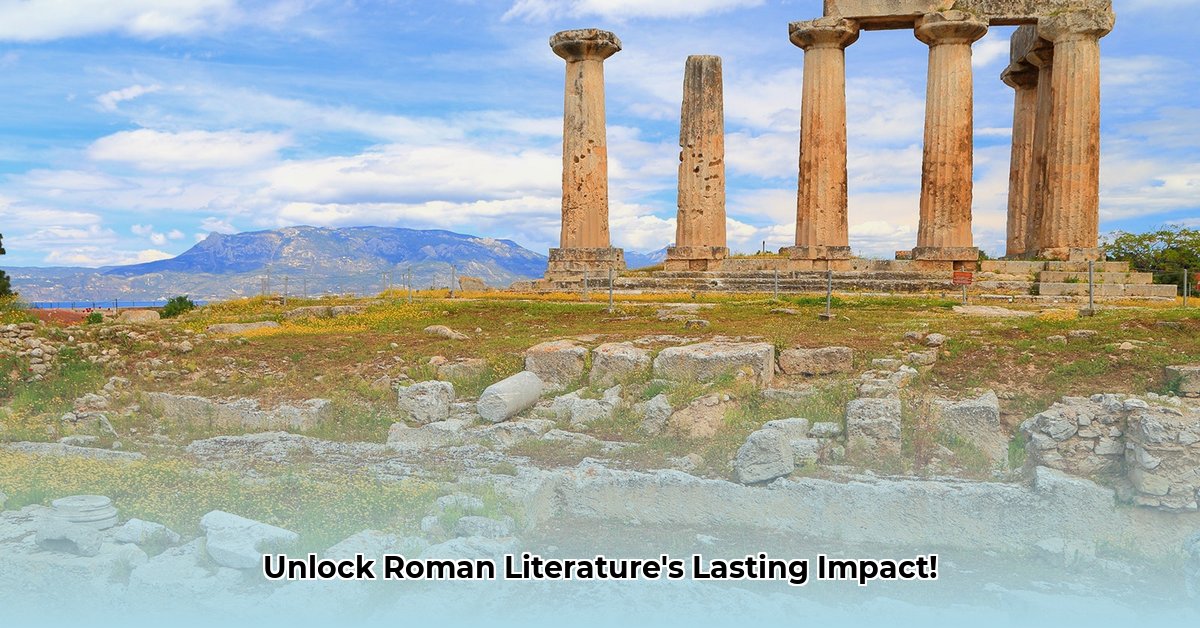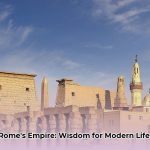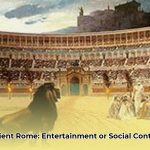Roman literature, a vibrant testament to human creativity and intellectual pursuit, stands as a cornerstone of Western civilization. Far from being a mere echo of Greek ingenuity, it forged its own distinctive path, profoundly influencing subsequent literary traditions, philosophical thought, legal systems, and even the very fabric of language. This article delves into the remarkable evolution of Roman literary expression, exploring its foundational figures, transformative periods, and the pervasive impact it continues to exert on our modern world. We will navigate the chronological shifts from its early Greek-inspired beginnings to the golden and silver ages of unparalleled brilliance, culminating in the rise of Christian literary voices, all while uncovering the profound insights offered by its historians, philosophers, and satirists. Prepare to explore how these ancient Roman voices continue to resonate with striking relevance today, shaping our understanding of duty, power, love, and the human condition itself. For further reading, consider this article on ancient Roman authors.
The Genesis of Roman Literary Identity: From Imitation to Innovation
The story of Roman literature began to take definitive shape around the 3rd century BCE (Before Common Era), initially drawing heavily from the more established artistic traditions of Greece. Early Roman writers, often adapting Greek comedies and epic poems, laid the groundwork for a unique Latin literary voice. Educated Romans frequently acknowledged this profound Greek influence, even translating notable Greek works into their native Latin. However, this was not simply mimicry; it was a fertile ground for adaptation and authentic creativity. Figures like Livius Andronicus, a Greek freedman, translated Homer’s Odyssey into Latin verse, effectively introducing Roman audiences to epic poetry and setting the stage for future innovation. Soon, the burgeoning Roman Republic witnessed the expansion into diverse forms including comedies, historical accounts, philosophical treatises, and a rich array of poetry.
The Golden Age of Roman Letters: A Flourishing of Genius
The period spanning approximately the 1st century BCE to the mid-1st century CE is universally celebrated as the “Golden Age” of Roman literature—a time of unparalleled artistic and intellectual flourishing. During this era, a constellation of literary giants emerged, each leaving an indelible mark on Western thought and expression.
Virgil (Publius Vergilius Maro, 70–19 BCE) stands as the preeminent epic poet of Rome. His magnum opus, the Aeneid, is an epic poem that masterfully blends mythology and Roman history, recounting the journey of Aeneas from Troy to Italy and the eventual founding of Rome. Far more than a mere adventure narrative, the Aeneid served as a foundational myth for the Roman people, celebrating core Roman virtues such as pietas (duty and piety), gravitas (seriousness), and virtus (manliness and excellence). Its profound influence on later literature, from Dante’s Divine Comedy to Milton’s Paradise Lost, cannot be overstated.
Horace (Quintus Horatius Flaccus, 65–8 BCE), the son of a freedman, became one of Rome’s most celebrated lyric poets and satirists. His Odes are renowned for their elegant craftsmanship, exploring themes of friendship, love, the simple life, and the passage of time, often famously advocating for the philosophical principle of “carpe diem” (“seize the day”). His Satires and Epistles offered sharp, witty critiques of Roman society, advocating for moderation and a balanced existence. Horace’s technical skill and profound wisdom earned him lasting admiration, influencing poets from ancient times through the Renaissance and beyond.
Ovid (Publius Ovidius Naso, 43 BCE–18 CE), arguably the most famous and, at times, infamous poet of the era, brought a dazzling linguistic virtuosity and playful spirit to Roman literature. His groundbreaking use of mythology and his exploration of love, transformation, and societal manners remain profoundly influential. His epic poem, Metamorphoses, a monumental work of fifteen books, seamlessly weaves together some 250 myths, tracing the history of the world from creation through countless tales of transformation. This work became an inexhaustible wellspring of inspiration for countless artists, writers, and musicians across centuries, from Shakespeare and Chaucer to modern film adaptations. Ovid’s Amores playfully explore the complexities of romantic love, while Ars Amatoria (The Art of Love) offers a witty, albeit provocative, guide to seduction. Despite his immense popularity, Ovid’s bold and often irreverent explorations of these themes led to his dramatic exile by Emperor Augustus in 8 CE, the precise reasons for which remain a subject of historical debate. Even in exile, his Tristia (Sorrows) and Epistulae ex Ponto (Letters from the Black Sea) demonstrated his enduring poetic genius and longing for Rome.
Catullus (Gaius Valerius Catullus, c. 84–c. 54 BCE) pioneered the naturalization of Greek lyric verse forms into Latin, infusing them with deeply personal, often erotic, playful, and even abusive, poetry. He dared to discard epic themes, focusing instead on his own experiences, friends, and complex relationships, particularly his intense love for a woman he called Lesbia. His work, remarkable for its emotional honesty and colloquial Latin, introduced a raw, immediate voice that distinguished him from his contemporaries.
Navigating the Silver Age: A Shift in Literary Tone and Focus
The “Silver Age” of Roman literature, generally spanning from 18 CE to 133 CE, marked a significant stylistic divergence from the preceding Golden Age. While some critical assessments have historically viewed it as a period of decline, a more nuanced understanding reveals it as a distinct era of dynamic stylistic experimentation, often characterized by sophisticated rhetorical expertise and elaborate ornamentation.
The prevailing educational system of the time, deeply rooted in the rigorous study of rhetoric (the art of persuasion and eloquent public speaking), profoundly influenced the era’s writing. This emphasis permeated virtually all works, influencing both prose and poetry, as authors were trained to craft intricate arguments and display their mastery of the Latin language.
One particularly notable shift in the Silver Age was the prominent emergence of satire as a dominant and highly influential literary genre. Writers cunningly employed satire to critique society, politics, and even the powerful emperors themselves—often through a clever veil of biting wit, subtle irony, and carefully crafted double meanings.
Key figures who shaped this era include:
Seneca the Younger (Lucius Annaeus Seneca, 4 BCE–65 CE), a Stoic philosopher, statesman, and tutor to Emperor Nero. His tragedies are the only ones to survive from Roman times and were hugely influential, particularly on Renaissance drama and Shakespeare. His philosophical essays, such as Moral Epistles and On the Shortness of Life, delve deeply into concepts of virtue, reason, and ethical living, offering profound insights into the human condition and the pursuit of tranquility amidst life’s challenges.
Juvenal (Decimus Junius Juvenalis, c. 60–c. 130 CE) is considered the greatest of the Roman satirists. His Satires masterfully wielded critique like a razor-sharp blade, incisively exposing the hypocrisy, moral decay, and rampant corruption he perceived festering within Roman society. His vivid portrayals of Roman life, though often exaggerated, provide invaluable historical and sociological insights.
Other significant Silver Age authors include Martial (Marcus Valerius Martialis, c. 40–c. 104 CE), known for his witty and often provocative epigrams, and the novelists Petronius (Gaius Petronius Arbiter, c. 27–66 CE), whose Satyricon offers a witty and amoral glimpse into Roman society, and Apuleius (Lucius Apuleius, c. 124–c. 170 CE), author of The Golden Ass (also known as Metamorphoses), the only complete Roman novel to survive, chronicling the adventures of a young man transformed into an ass.
The inexorable rise of the centralized Roman Empire had a profound impact on literary expression during this era. Writers were frequently compelled to skillfully navigate the intricate complexities of imperial power, often facing explicit censorship or the ever-present threat of severe political repercussions for their words. This inherent need for cautious expression, often through veiled allegories or subtle critique, undeniably contributed to a more nuanced, sophisticated, and at times, intentionally elusive literary style, distinguishing it from the simpler clarity often prized in the Golden Age.
Beyond Verse: The Pillars of Roman Prose – History and Philosophy
Roman literature encompasses far more than poetry and fiction. It boasts a rich tradition of historical writing, powerful oratory, and insightful philosophical discourse, all of which have left an indelible mark on Western thought.
Historians:
- Livy (Titus Livius, 59 BCE–17 CE) penned a monumental history of Rome, Ab Urbe Condita (From the Founding of the City), in 142 books, though only 35 survive. While he incorporated myths into his narrative, his work powerfully articulated a Roman sense of destiny and provided a grand narrative sweep of the Republic’s rise.
- Sallust (Gaius Sallustius Crispus, c. 86–35 BCE), influenced by the Greek historian Thucydides, wrote detailed and incisive accounts such as Bellum Catilinae (The Conspiracy of Catiline) and Bellum Iugurthinum (The Jugurthine War), noted for their psychological depth and critical analysis of political corruption.
- Tacitus (Publius Cornelius Tacitus, c. 58–c. 120 CE), a senator and historian, offered a more critical and often pessimistic view of imperial Rome in works like the Annals and Histories. His sharp portrayals of emperors and his insightful analyses of power dynamics demonstrate remarkable literary skill and continue to be studied for their historical accuracy and literary style.
- Suetonius (Gaius Suetonius Tranquillus, c. 69–c. 130 CE) is renowned for his biographical work De Vita Caesarum (The Twelve Caesars), offering fascinating, if sometimes anecdotal, accounts of Roman emperors from Julius Caesar to Domitian.
Philosophers and Orators:
- Cicero (Marcus Tullius Cicero, 106–43 BCE) was not only a brilliant statesman and orator—a master of public speaking—but also a prolific writer on rhetoric, politics, and philosophy. His extensive writings on governance, ethics, and law profoundly influenced Western political thought, legal theory, and the very structure of Latin prose. His philosophical dialogues, such as De re publica (On the Republic) and De legibus (On the Laws), debated core concepts of justice, governance, and civic duty, ideas that resonated strongly with the Founding Fathers of the United States.
- Marcus Aurelius (121–180 CE), one of the “Five Good Emperors,” was a devout Stoic philosopher. His Meditations, written in Greek, offer profound reflections on resilience, self-discipline, and the pursuit of virtue in the face of adversity, providing timeless wisdom for navigating life’s challenges.
- Lucretius (Titus Lucretius Carus, c. 99–c. 55 BCE), an Epicurean philosopher, produced the epic didactic poem De rerum natura (On the Nature of the Universe), which expounded the principles of Epicureanism, including the atomic theory, the absence of divine intervention in the world, and the pursuit of tranquility through freedom from fear and pain.
The Christian Influence: A New Moral Compass in Roman Literature
From the 4th century CE onwards, the spread of Christianity gave rise to a new genre of literature, profoundly shifting the moral and spiritual landscape previously dominated by pagan themes. This era saw the emergence of influential clerics and writers who explored Christian morality, theology, and the burgeoning relationship between church and state.
- St. Ambrose (c. 340–397 CE), Bishop of Milan, was a pivotal figure whose writings, such as De officiis ministrorum, delved into Christian morality and ecclesial discipline, asserting the church’s authority even over emperors.
- St. Augustine of Hippo (354–430 CE), one of the most significant figures in Western Christianity, left an indelible mark with his seminal works. Confessions is an autobiographical account of his spiritual journey and conversion, while De civitate Dei (The City of God), written in response to the sack of Rome in 410 CE, offers a profound theological defense of Christianity and a philosophical exploration of human history and destiny. These works introduced a distinct new moral and spiritual perspective previously largely absent from Roman pagan writings, profoundly shaping Western theology and philosophy for centuries.
- Alongside these Christian voices, some pagan authors continued to contribute, such as Claudian (Claudius Claudianus, c. 370–c. 404 CE), the court poet of Emperor Honorius, considered the last important poet of the classical tradition, who wrote panegyrics celebrating Roman generals and emperors.
Decoding the Enduring Impact of Roman Literature on Western Culture
The profound legacy of Roman literature continues to resonate across the globe, influencing countless subsequent authors, shaping legal and political systems, and forming the very foundation of Western languages and intellectual traditions. It remains a vital subject of academic study for its intrinsic literary merit and immense historical significance, offering critical and nuanced insights into the culture, core values, and intellectual life of ancient Rome.
Language and Legal Foundations
The direct influence of Latin, the primary language of Roman literature, is particularly evident in the Romance languages (French, Spanish, Italian, Portuguese, Romanian) which are its direct descendants. Moreover, Latin permeates English, especially in academic, scientific, and legal terminology, providing a sophisticated vocabulary for specialized fields. Roman law, meticulously codified and documented by jurists and writers, formed the bedrock of many European legal systems and influenced the development of international law, emphasizing concepts like justice, property rights, and due process. Through legal treatises and philosophical works, Roman authors laid down principles that underpin modern jurisprudence.
Literary and Artistic Inspiration
From the Renaissance to the Enlightenment and beyond, Roman texts have served as an inexhaustible source of inspiration for writers, artists, and thinkers. Shakespeare, Chaucer, Dante, Milton, and Goethe are just a few of the literary titans who drew heavily from Roman narratives, mythological figures, and stylistic techniques. The Aeneid provided a model for national epics, Ovid’s Metamorphoses offered a compendium of classical myths, and Seneca’s tragedies influenced the development of dramatic forms. Classical allusions and literary devices derived from Roman works continue to enrich contemporary literature and art.
Philosophical and Political Thought
Roman philosophers, particularly the Stoics like Seneca and Marcus Aurelius, explored universal themes of virtue, ethics, duty, and resilience. Their ideas continue to provide guidance on leading a meaningful and ethical life, informing modern self-help literature and philosophical discourse. The political writings of Cicero and the historical accounts of Livy and Tacitus offer crucial insights into governance, civic responsibility, and the dynamics of power, resonating deeply with political philosophers and leaders throughout history, including the architects of modern democratic republics.
Actionable Insights: Unlocking the Power of Roman Literature Today
The insights gleaned from studying Roman literature offer profound applications across various fields, depending on individual interests and professional roles:
- For Educators: Integrate comparative analyses of Greek and Roman texts into curricula to illustrate the dynamic cultural dialogue across antiquity. Develop interdisciplinary programs connecting Roman literature to modern political science, ethics, and creative writing, highlighting its ongoing relevance.
- For Students: Engage deeply with original or translated Roman texts, meticulously noting their historical context and unique literary qualities. Explore how perennial Roman themes (duty, virtue, love, ambition) are reflected in contemporary media and societal debates.
- For Researchers: Investigate less-known Roman authors and texts to construct a more comprehensive picture of the era’s literary landscape. Conduct comparative studies tracing Roman literature’s influence on subsequent movements (e.g., Renaissance, Enlightenment), identifying specific lines of transmission and reinterpretation. Scrutinize how Roman texts contributed to establishing fundamental Western cultural and intellectual traditions.
- For Creative Professionals (Artists, Writers): Draw profound inspiration from classical Roman themes, narrative structures, and character archetypes to craft new, compelling artistic pieces. Boldly engage in contemporary reinterpretations and adaptations of classical Roman literature to explore and address pressing modern issues.
- For Legal Scholars & Professionals: Examine the deep historical origins of contemporary legal concepts and frameworks in Roman law to better inform current legal practices and interpretations. Advocate for the preservation and study of classical Roman texts, recognizing their vital role in cultivating a deeper understanding of legal history and underlying philosophy.
In essence, examining Roman literature is not merely an academic exercise; it is a fundamental act of understanding the enduring roots of Western culture and actively discovering the timeless truths that continue to shape and define our complex world. The dynamic synthesis of Greek foundations and Roman innovation created an intellectual and cultural legacy that profoundly impacts modern society in myriad ways. Its rich tapestry of voices and ideas continues to offer profound lessons for navigating the complexities of human existence and building enduring societies.










